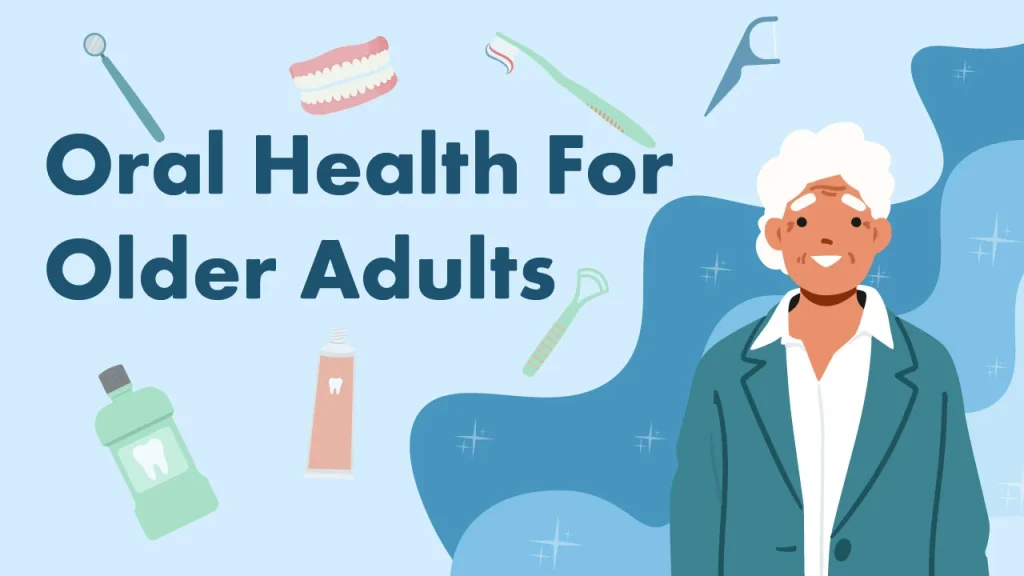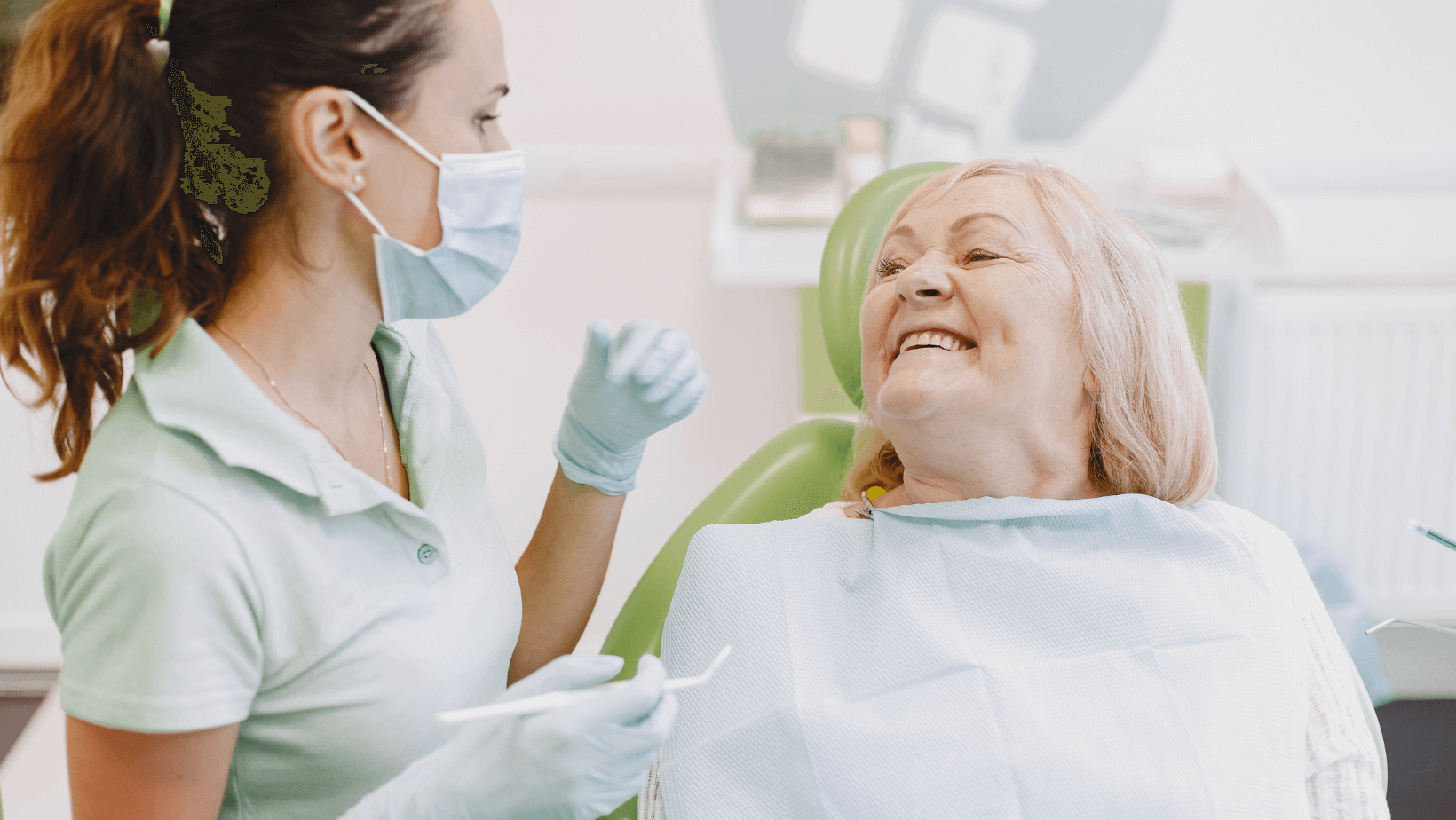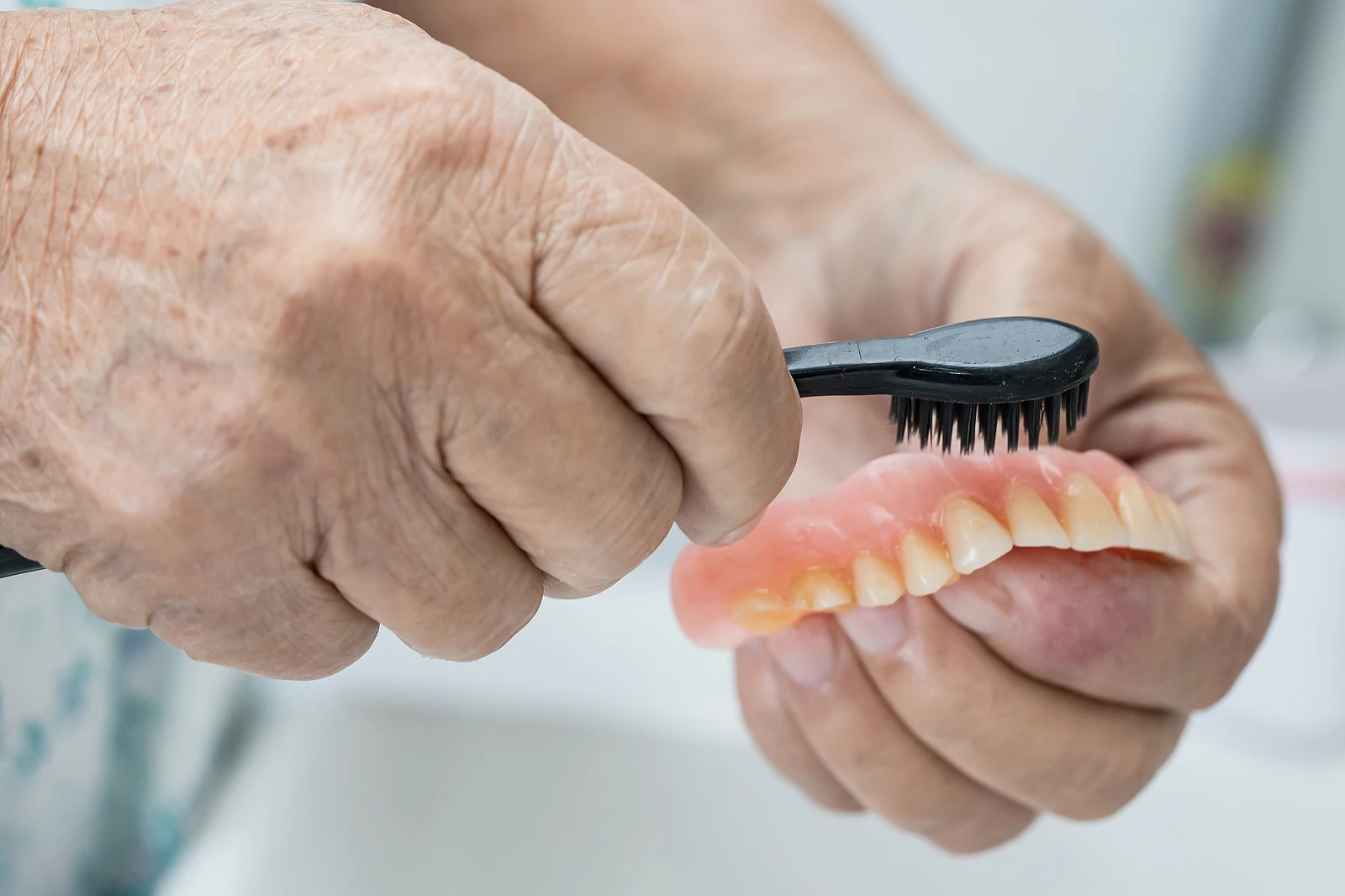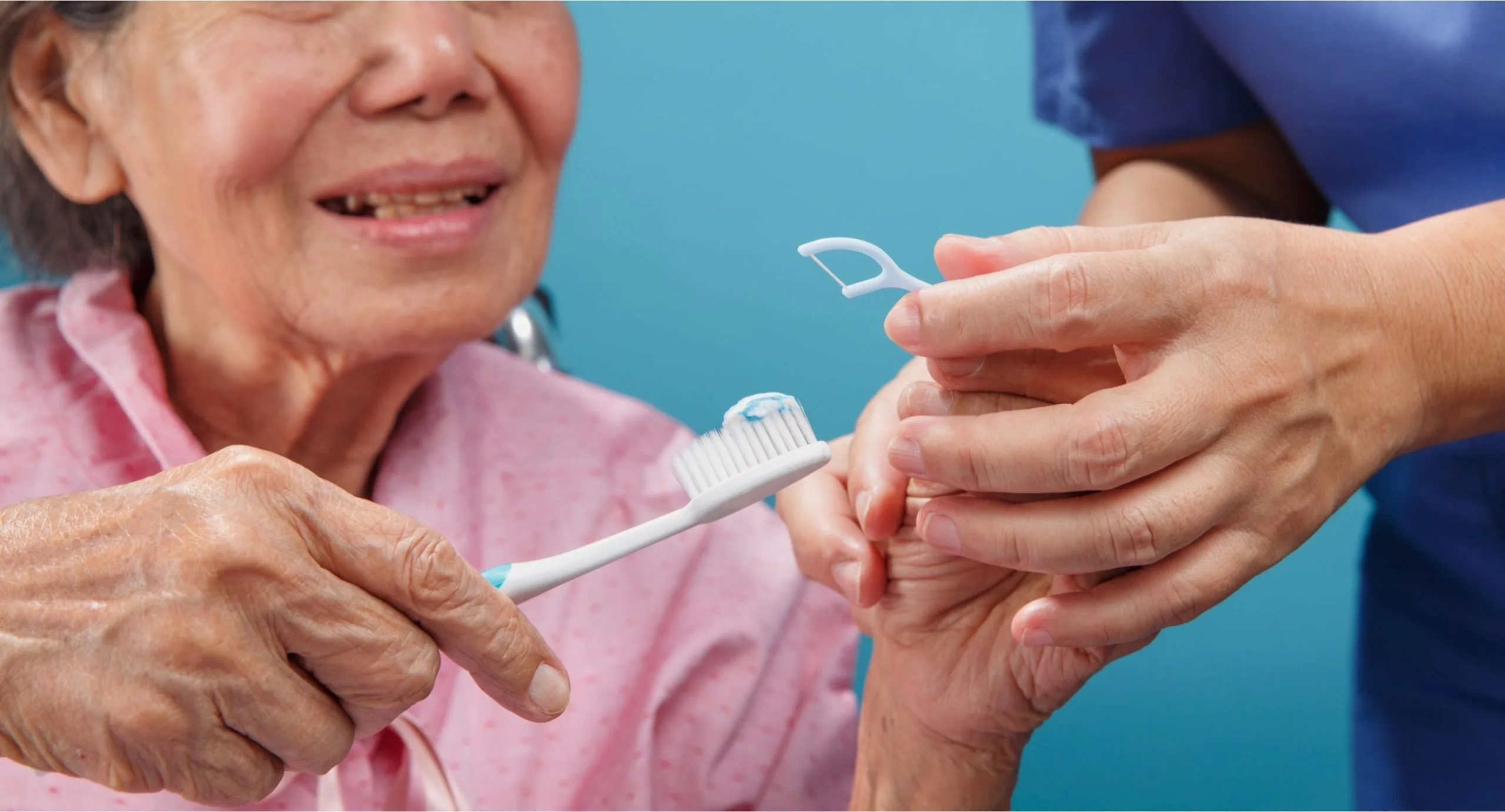
Important Points About Oral Hygiene in the Elderly
In this article from humanhealthmag, we will examine Oral hygiene in the elderly. People of all ages may experience problems and diseases related to oral and dental health. In the meantime, oral and dental care for seniors is of great importance due to some underlying diseases, inability to perform the necessary care and changes in the mouth and jaw.
If there are elderly people among your family members, it is better to remind them of the necessary recommendations in the field of oral and dental health for the elderly, such as elderly bathing. Since the denture health of the elderly is specific to this age; the important points in maintaining their oral and dental health, which are introduced in this article, will be different from other age groups. Join us to learn more about important points in this field.
How to Care for Natural Teeth in the Elderly
In the elderly who have natural teeth, cleaning microbial plaque is the most important principle in their oral health care at home. In addition to preventing tooth decay and gum disease, this practice also makes the mouth smell good. It is better for the elderly to clean their teeth with soft toothbrushes according to the correct brushing methods.
Meanwhile, in the elderly who have suffered from gum recession (in certain areas of the mouth), it is recommended to use a very soft toothbrush with rotating movements on the tooth surfaces and with gentle pressure in the areas of recession. Using toothpaste is mandatory due to the benefits of fluoride and helping to remove plaque and color on the teeth (of course, provided that the toothpaste does not irritate). In the meantime, one of the benefits of in-home care for the elderly who live alone is taking care of their teeth and taking care of their hygiene.

The Importance of Oral Hygiene in the Elderly
Observing oral hygiene in the elderly is very important; because oral and dental diseases often occur due to lack of hygiene. Middle-aged people are more susceptible to oral and dental diseases. Because the body’s immune system becomes weaker with age. For this reason, lack of hygiene can lead to many problems in the body. Elderly people need help more than ever. For this reason, they should not be neglected. These loved ones cannot do their work alone at an older age, which is why they need more help. Note that an elderly nurse can also assist elderly with daily living activities such as brushing teeth and maintaining oral hygiene.
Also, taking some medications at any age can cause problems for teeth. Such medications are more often prescribed and used at an older age. So, as a rule, elderly and old people are more susceptible to oral and dental diseases. A large percentage of these people have lost their natural teeth and use dentures and removable prostheses. The problems that arise in these people are mostly related to gums and dry mouth. Medications related to diabetes and osteoporosis and bone pain often cause periodontal diseases and dry mouth. But it is possible to prevent these diseases.
Oral and Dental Disease in the Elderly
There are some common and common diseases in the oral and dental field of the elderly, and for this reason, observing Oral hygiene in the elderly is very important. Common diseases related to the oral and dental health of the elderly are as follows:
- Periodontal disease
- Tooth decay
- Tooth loss
- Dry mouth
- Tooth abrasion
- Cancer lesions in the mouth
- Oral diseases caused by diabetes
- Gum recession
- Oral cancer

Tips for Caring for Your Teeth and Gums in the Elderly
To maintain oral hygiene in the elderly, brush your teeth with a fluoride toothpaste twice a day (morning and night) and floss at least once a day. Dental plaque can quickly build up on your teeth. Dental plaque is a thin, sticky layer containing millions of bacteria that adheres to the surface of your teeth. Watch for signs of gum disease. These signs include gums that bleed after brushing or after eating hard foods like apples.
To improve your oral health, see your dentist regularly. Many experts recommend a checkup every 6 months. Tell your dentist about any new medications you are taking. Eat a balanced diet that includes whole grains, vegetables, and fruits and is low in saturated fat and sodium. Good nutrition is vital for maintaining healthy gums and preventing tooth decay. There are some important and key points to take care of the oral health of the elderly, including the following:
- Brushing teeth thoroughly and regularly
- Maintaining daily oral and gum hygiene
- Flossing regularly
- Performing periodic and annual checkups
What Should Elderly People With Oral and Dental Problems do?
With age, changes occur in the mouth of elderly people, the most obvious of which is the loss of teeth. For this reason, children and elderly caregivers should be familiar with the tips related to Oral hygiene in the elderly. Elderly people are usually toothless or have few teeth. Many elderly people use dentures. And some of them, who are weaker, cannot tolerate denture bases. In some cases, they prefer to use soft foods that do not require chewing. For this reason, they avoid eating nutritious foods containing fiber. Many of them prefer liquid and semi-solid foods.

In many cases, the diet that is considered for the elderly is not balanced because it contains a small amount of energy, protein, minerals and vitamins. Malnutrition is a common feature among elderly people. Especially those who belong to economically disadvantaged groups. Also, the lack of fiber-containing foods in the diet of the elderly, especially wholemeal bread and vegetables, causes constipation, when food is not chewed well enough during eating. Oral hygiene is especially compromised among the elderly who neglect to clean their teeth. In addition, gum disease is common among the elderly. Things that caregivers of the elderly should consider include:
- Checking the condition of the teeth
- Checking the condition of the gums
- How to use dentures
- Finding out the eating habits of the elderly about the types of foods consumed and giving them appropriate advice
- Convince the elderly to clean their teeth seriously and properly every day
Concluding Remarks
In this article, we have explained the tips related to Oral hygiene in the elderly. As mentioned, teaching the elderly care tips, proper and daily tooth cleaning, frequent dental examinations, and avoiding unpleasant habits such as teeth grinding prevent them from getting involved in oral and dental diseases in the elderly. If this question has occupied your mind as to what is bruxism, you should know that this term refers to a condition in which a person presses and grinds his teeth together while sleeping or awake, which repeatedly causes damage to the teeth.
A notable point in preventing tooth decay in older people is that you should use toothpaste containing high doses of fluoride to manage their tooth decay. This knowledge will help you to take good care of the dental health of the elderly and keep them safe from problems related to oral and dental diseases. The oral health of people in old age is also closely related to the roots and how the baby’s teeth erupt in childhood.
Could you help us make this content even better? What do you love, and what can we improve? Share your thoughts below, feedback is the key to creating better content for YOU. If you also have an experience in this regard, please share it with us and others.

Frequently Asked Questions
What are the Symptoms of Tooth Decay in the Elderly?
Tooth decay in the elderly occurs due to changes in the texture and thickness of the underlying layer of the tooth, which causes darkening, cracking, and ultimately fracture of the teeth, which in addition causes tooth decay and the accumulation of plaque on the teeth. Dry mouth and bad breath are caused by reduced saliva production and long-term use of dentures and lack of hygiene of dentures, which of course reduces the body’s ability to produce saliva with age.
What are the Consequences of Mouth Ulcers and Infections in the Elderly?
Mouth ulcers and infections are one of the most serious dental disorders in the elderly. As we age, the risk of developing mouth ulcers also increases, and if the infection is not treated in time, it may lead to oral cancer; therefore, paying attention to oral and dental hygiene in the elderly is very important.
What are the Most Common oral Infections in the Elderly?
Oral thrush is a form of grayish-white bumps on the oral mucosa of the tongue that bleed when picked. Another common disease is gingivitis, the source of which is a complex microbial accumulation including gram-negative bacteria and endotoxins on the gum margin, which leads to gingivitis.
